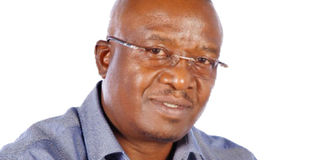On the failure of collective memory and tales of woe from my ‘village’

What you need to know:
Psychology. Universal human learnings such as fear of fire or desire for a better society are supposed to spring from a collective unconscious each of us carries within us which contains memories of how life was for past generations.
The more things change, the more they remain the same. Sounds trite but that is a common metaphor, whose origins are ascribed to the French (plus ça change, plus c’est la même chose). Many thinkers have tried to explain why this metaphor holds true in sociology by advancing various explanations. The one that for me has come to stick the most is the term collective memory. Collective memory is the term for the memories of a group of people collected through shared social experiences. Thus as a community/nation, one would think that we Ugandans have a shared collective memory.
According to this concept, we would expect that all of our personal memories are recorded through the filter of our collective and social memories. For example, we remember to take our children to school (or church) through the lens of our family taking us to school and how other parents behaved while in those places. Collective memory is supposed to be enhanced because we conserve history. Universal human learnings such as fear of fire or desire for a better society are supposed to spring from a collective unconscious each of us carries within us which contains memories of how life was for past generations.
Unfortunately, collective (or social) memory, like individual memory, is extremely fallible. Together we only remember a fraction of what happened in the past and that is why as societies we tend to repeat the same mistakes. Here are some examples of collective memory failure that illustrate the point.
For a while now, we have known that the slopes of Bududa (in the Mount Elgon area) are unstable. Not only have we known this fact geologically, but we have known it through the unfortunate loss of lives. We know that catastrophe is waiting to happen almost each and every rainy season and that there will be mudslides that will result in the loss of life. Unfortunately, as a collective, we fail to undertake definitive measures that will prevent a recurrence of the fatal landslides. Guess what, the mudslides keep on recurring and so do fatalities.
As we move into the festive season, we know that many people will be travelling upcountry. Despite warnings and roadblocks to prevent reckless driving, there will be unfortunate fatalities. This is not a new thing. It happens almost every year. As day follows night, some of the festive holiday makers will be reckless and cause untold grief.
The above two examples may not be of tectonic proportions perhaps. But then consider our selective memory of events like happened in 1966, 1971, 1979 and 1986. Those events have come to shape our history in a very fundamental way. At their advent, these events were embraced or deplored, depending on which side of the political divide one stood. Consequentially, regardless of which side Ugandans tended to support, these events have not (necessarily) delivered a more egalitarian society. Indeed, our recollection and reconstruction of those events is a function of the divide they found the recorders of our personal or ethnic narrative.
The question is why do we remember what we do, and forget all the rest? Why do we have a collective (selective?) failure of memory? Those who study the criticality of these things point to the consequences of “mnemonic silence”; the failure, by leaders, communities, or even an entire nation, to express these memories publicly and truthfully. What high-profile figures say about those episodes from the past shapes what, if anything, the public recalls about them.
As a result, the one that tells the history specific groups in our society want to identify with, defines that group’s collective memory (or forgetting). This is because collective memories tend to follow a simple narrative structure, having a beginning, a middle and an end. The devil lies in the detail of what is untold. By making myths of our reality, we enable ‘history to repeat itself’.
Prof Sejjaaka is country team leader at Mat Abacus Business School.
[email protected]
@samuelsejjaaka


